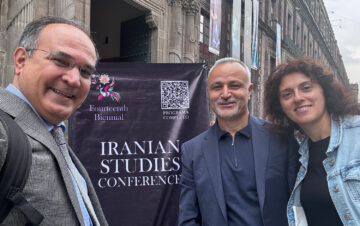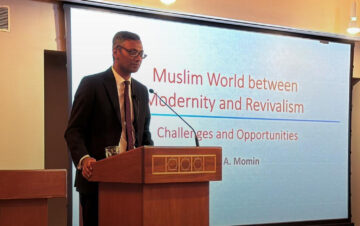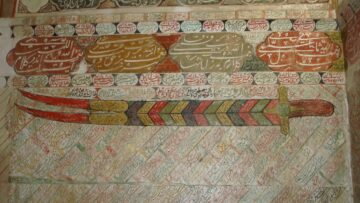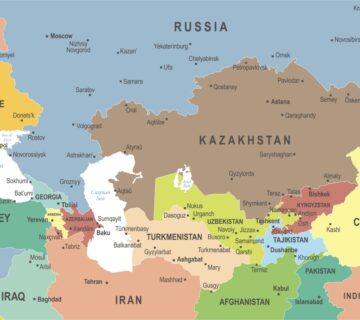On 8th March, Dr. Najam Abbas, a Research Associate at The Institute of Ismaili Studies, gave a talk entitled “When Transition Visits Mountains: Education, Work and Careers in South eastern Tajikistan” at the Centre of Contemporary Central Asia and the Caucasus in the School of Oriental and AfricanStudies (SOAS). Dr Abbas had been invited by the Centre’s Chair, Dr. Bhavna Dave, as part of the Centre’s regular Seminar Programme.
Dr. Abbas’ talk explored the impact of socio-economic transition on education and careers of the youth of isolated mountainous regions. In particular, he looked closely at recent challenges faced by Tajikistan’s Pamiri youth who are completing their education and entering the labour market, making comparisons with the challenges their parents had faced.
The aim of the talk was to examine the complex interactions that are encountered by young people in attempting to achieve their aspirations. An understanding of the impact of socio-economic mobility requires familiarisation with the factors defining the available pathways to meaningful adulthood through educational and occupational attainments. It further necessitates a study of the sense-making devices utilised by young people in their attempts to understand their own lives and future opportunities.
The presentation examined the constructive contribution Pamiri society could make to enable its youth to generate the social capital vital for civil society, through creativity in education and connectivity in everyday life.
Dr Abbas, concluding that the challenges that arise are related to ideas about the utility of education and purposefulness of a young adult’s life, referred to inter-linked and inter-related factors such as isolation, levels of employment, and opportunities to travel or study abroad. He suggested that there is a wider need for studies to develop and define concepts of disadvantage or social exclusion in mountainous settings.






